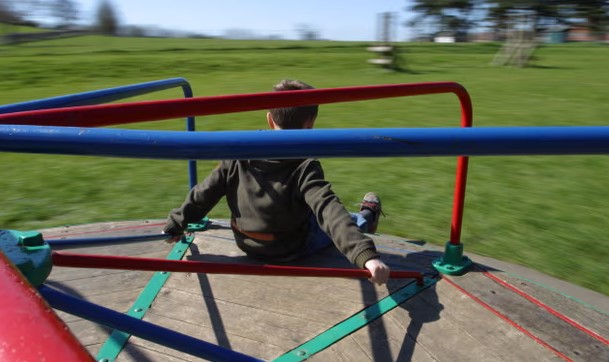Children in England who are referred to social services at any point in their childhood are twice as likely to fail GCSE maths and English, according to new research published ahead of results day on Thursday.
Analysts looked at 1.6m pupils’ exam results over a three-year period and found that 53% of teenagers who had been referred to social care – as detailed in the Children in Need census – did not achieve a grade 4 pass in both English and maths GCSE.
In contrast, 24% who were not the subject of a referral failed to achieve a level 4 in both key subjects, according to researchers who called on ministers to tackle what they described as a “worrying attainment gap”.
The analysis by the children’s charity Action for Children, with data consultants FFT Education DataLab, looked for the first time at GCSE outcomes for all children with a referral, rather than just those who were supported by the social care system.
About 318,000 children a year are referred to social care in England, often because their family is struggling to cope, or because of neglect, abuse or risk of harm. Many will not end up receiving support because, for example, they don’t meet the threshold, yet their GCSE attainment still suffers.
Joe Lane, head of policy and research at Action for Children, said: “Our analysis shows that poor English and maths GCSE results fall hugely unequally on those who experience challenges outside the school gates.
“It highlights a worrying attainment gap that needs urgently addressing. Some of the children could have been referred to social care years before they took GCSEs, yet that disruption in their childhood has had a lasting impact on their education.”


